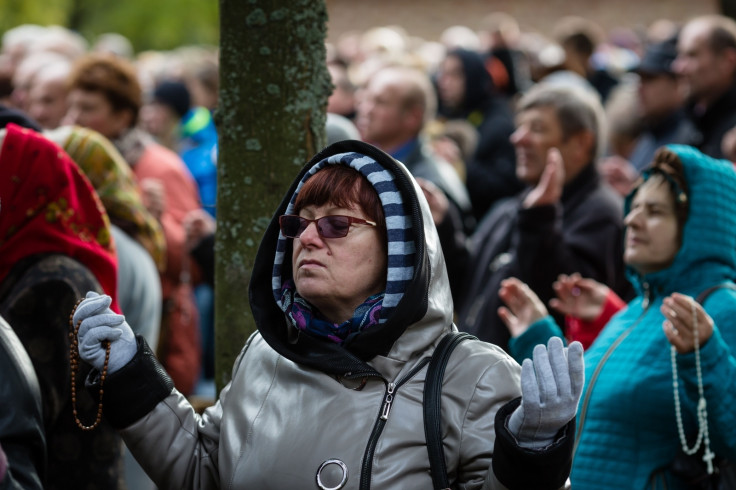Poland: Islamophobia fears as thousands pray at borders to mark historic victory over Muslims
Hundreds of churches across the country have been taking part in the event.

Thousands of people have come out in Poland as part of a rosary bead festival to celebrate the defeat of Muslims almost 500 years ago.
The "Rosary on the Borders" event, was organised by church leaders across the eastern European nation to mark the 1571 victory of Christianity over the Ottoman Turks at the Battle of Lepanto.
Many Poles have gathered around the nation's borders with rosary beads with hundreds of prayer points set up.
Twenty-two border dioceses are taking part in the event along with more than 200 churches.
Fears have been raised though that the event, which comes at a time of increased tensions with Muslims in the continent, could stoke rows in the country.
Even those who are at sea or unable to take part in the event can still engage with boats expected to form chains in the coastal areas to the north and in lakes inside the country.
Father Pawel Rytel-Andrianik, spokesman for the Polish Bishops' Conference said: "The initiative obviously received the approval of Poland's bishops.
"It is not a matter of closing ourselves off to others. On the contrary, the point of bringing the rosary to the borders is to break down walls and open ourselves up to Russians, Belarussians, Slovaks, Ukrainians and Germans."
But others have spoken with more tougher tone, including the nationalist Catholic activist Marcin Dybowski who explained to the Mail that Europe had been "invaded by Islam."
He said: ""The reality is that there are no borders. (German Chancellor Angela) Merkel opened them up to a large extent."
The Polish government has refused to take large numbers of refugees over security fears, citing the spate of attacks across the UK, France, Germany and Spain.
The Polish Prime Minister Beata Szydło stated simply that "Poland cannot accept refugees."
Halina Kotarska, 65, traveled 230 kilometers (145 miles) from her home in Kwiciszewo, central Poland, to express gratitude after her 29-year-old son Slawomir survived a serious car wreck this year. She described it as a miracle performed by St. Mary.
She said she was also praying for the survival of Christianity in Poland and Europe against what she sees as an Islamic threat facing the West today.
"Islam wants to destroy Europe," she said. "They want to turn us away from Christianity."
A leading Polish expert on xenophobia and extremism, Rafal Pankowski, said he sees the prayers as a problematic expression of Islamophobia coming at a time of rising anti-Muslim sentiment in Poland, a phenomenon occurring even though the country's Muslim population is tiny.
"The whole concept of doing it on the borders reinforces the ethno-religious, xenophobic model of national identity," said Pankowski, who heads the Never Again association in Warsaw.
© Copyright IBTimes 2025. All rights reserved.




















